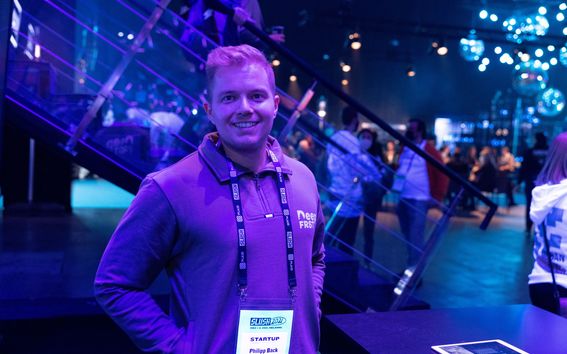From research to business: doctoral student Philipp Back and team initiate forestry startup formation

When Philipp Back started his doctoral studies at Aalto University’s School of Business, he didn’t know that the research group’s work would lead to a business idea that could make forest management both more environmentally friendly and more profitable.
Back had started his doctoral studies because he wanted to learn more about machine learning and data science, and because he wanted to work on interesting research problems.
‘My colleague, Professor Olli Tahvonen from the University of Helsinki, had been doing research on forest economics and forest ecology for decades, and my doctoral supervisor Professor Pekka Malo and my research colleagues at the Aalto University School of Business had developed an algorithm that could be used to optimise forest management strategies. By bringing these together, our research group ended up doing truly multidisciplinary research and uncovered new findings about the optimal management of forest assets,’ Back says.
When the research group realized that their results could have commercial value as a software product, they started looking for funding instruments to prepare the commercialization of the results.
‘Personally, I found it really exciting that while doing a doctorate you could both do research on how to use machine learning to optimise forest management and work on bringing that research to the market,’ Back says.
Patent applications and skydiving pitching
The Aalto University innovation services advised Back and his colleagues to apply for funding from Business Finland, a Finnish government organization that funds innovation and promotes trade, travel, and investment. As a result, the research group was granted Research to Business funding, which gave them the mandate and the funding to work on both applied research and its commercialization.

‘We were able to not only continue the research but also to cover costs related to, for example, the patent application, the work with lawyers, market research, initial brand and website design, and some travel costs related to meetings with potential customers and investors. These are all things that are important for commercialization but which you wouldn’t be able to do with purely academic funding,’ says Back.
These tasks and challenges also meant that Philipp Back had to learn new skills that aren’t normally part of a doctoral programme.
‘Suddenly, we had to learn how to work with lawyers to draft a patent application to protect the work we had done. We wrote job ads and hired outside help to fill the skill gaps on our team. We received coaching on how to do an investor pitch, and we worked with the media teams of both Aalto University and the University of Helsinki on a press release to promote our work. We also went out to the real world and started talking to potential customers and investors,’ Back says.
Back very much enjoyed these more unusual parts of his doctoral journey. He says this is because he is fundamentally a business-minded person, having done both his bachelor’s and master’s degree at a business school, as well as working in companies.
‘Looking back on my doctoral journey, the most memorable moment is probably the skydiving pitch I was invited to do by Superangel VC. I actually went up in a plane, jumped out of the plane, and while falling at 250 km/h, pitched our idea for a future research-based company, DeepFRST.’
Preserving the beauty of the forest for future generations
So far, the work has resulted in many lines of computer code but not yet a ready product. This fall, the group will establish the spin-off company DeepFRST and start refining their software for the needs of different end users.
‘A big part of the Research to Business program is to find a product-market fit, so we are working on finding a match between the pain points of the customers and our upcoming products. What we currently envision is that our tool could help both private and institutional forest owners, and perhaps also insurance companies and banks, to really manage their forest assets in a more optimal way, including timber revenues, carbon sequestration, and biodiversity preservation,’ Back explains.
In addition to clear research and business goals, Philipp Back’s work also has more personal goals.
‘I moved to Finland, and I think that the Finnish forests are one of the most beautiful things about the country. I like to go to the forest both in the summer for hiking and in the winter to do cross-country skiing, and I like to take my family to the forest. I hope that my son, who is now one and a half years old, will someday learn that the work I have been doing has perhaps made a tiny contribution towards helping the forests and preserving their beauty.’
Read more:
A news story by Yle (In Finnish): https://yle.fi/uutiset/3-12402012
More information
Read an article by Yle (in Finnish):
Read more news

Significant donation to boost pavement engineering research and education
Companies and associations in the field have donated €400,000 to the School of Engineering.
‘Mesoscale’ swimmers could pave way for drug delivery robots inside the body
Researchers have discovered how tiny organisms break the laws of physics to swim faster — such secrets of mesoscale physics and fluid dynamics can offer entirely new pathways for engineering and medicine.
Design strengthens industrial competitiveness – human-centered factory work at the core
Factory work is undergoing a transformation: new technologies and artificial intelligence are changing the content and roles of work. Aalto University’s Department of Design is studying this change from a human-centered perspective in the HiFive project.






